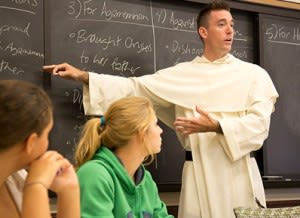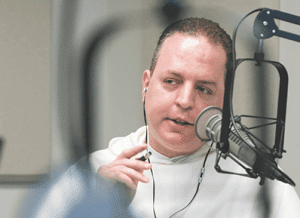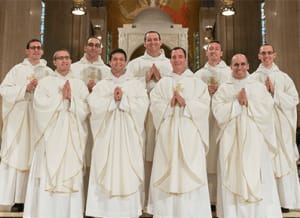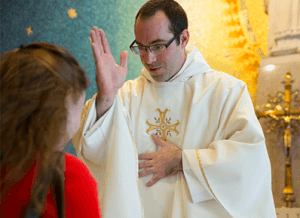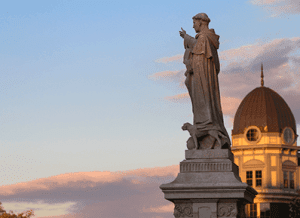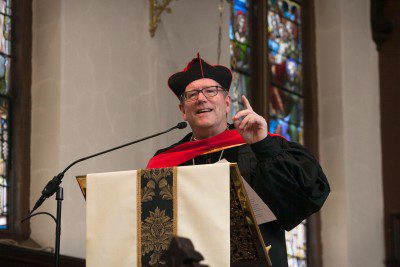Thomas Aquinas and the New Evangelization
On May 13, Conferral of Degrees took place in the priory chapel of the Dominican House of Studies. An honorary Doctorate in Sacred Theology was conferred on Most Reverend Robert E. Barron, Auxiliary Bishop of the Archdiocese of Los Angeles, who gave the Commencement Address.
Bishop Barron proposed the thought of Thomas Aquinas as the key to surmounting two obstacles to the New Evangelization: a tendency to subject Christian Revelation to the court of common human experience and a false theology that conceives of God as just another cause within the created world, an idea that leaves the door open to the arguments of the New Atheists.
The following are excerpts from Bishop Barron’s address:
One of the principal causes of the present enervation of religion in the West, and one of the major reasons why people respond less and less to Christianity, is the dominance of the correlational or experiential-expressivist method in theology. . .
Now problems with this method abound, but I should like to draw attention to what I take to be its fundamental flaw, namely, the positioning of revelation by a criterion extrinsic to itself. Such a move stands athwart the structuring logic of the New Testament, whereby Christ the Logos is that in which all things inhere and in terms of which all things are understood. . .
The consistent exercise of this method within Catholic theology for the past seventy years or more has produced, on the ground, what I have termed “beige Catholicism,” which is to say a Catholicism whose distinctive colors have faded and which has devolved into a flattened out simulacrum of the environing culture, a Catholicism unsure of itself, adrift, in Peter Steinfels’s apt phrase. . .
I would advocate the method followed by John Henry Newman, which I would describe as assimilationist. . .The Church can and should reach out to the world, but not in the liberal manner. It should remain light on its feet, willing to move and react appropriately, neither fully embracing or fully resisting, open and closed, depending on the circumstances, a culture lover and a culture warrior. . .
. . .Biblical religion constitutes the greatest humanism ever proposed, indeed that ever can be proposed. Many of the Church Fathers summed up Christianity with the pithy phrase, “Deus fit homo ut homo fieret Deus [God became man that man might become God],” implying that the ordinary goal of the Christian life is deification, a term often used by Aquinas. No humanism, ancient or modern, has ever proposed such an exalted consummation of human being and activity.
Therefore, in our evangelizing of the contemporary culture, we can and should turn with enthusiasm to the Common Doctor, who teaches us, in substantial ways, both what to say and how to say it. Congratulations to our graduates. May you embrace St. Thomas Aquinas as your spiritual father!
For a full transcript of Bishop Barron’s address, contact us at DF@DominicanFriars.org
The Dominican Foundation of Dominican Friars Province of St. Joseph, Inc. is a NY State tax-exempt corporation under section 501(c) (3) of the Internal Revenue Code, with
Tax ID # 26-3273636.


